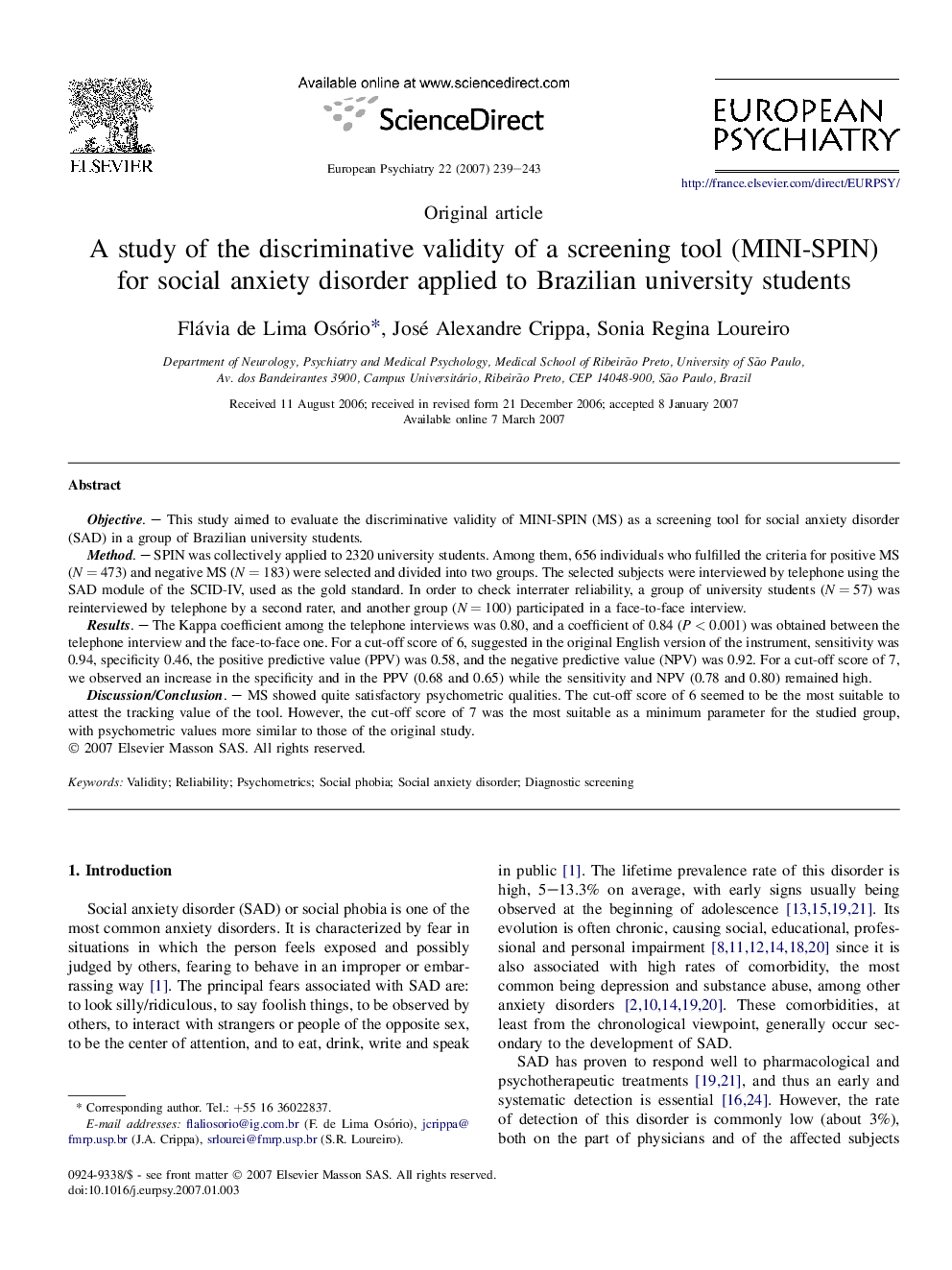| Article ID | Journal | Published Year | Pages | File Type |
|---|---|---|---|---|
| 4185710 | European Psychiatry | 2007 | 5 Pages |
ObjectiveThis study aimed to evaluate the discriminative validity of MINI-SPIN (MS) as a screening tool for social anxiety disorder (SAD) in a group of Brazilian university students.MethodSPIN was collectively applied to 2320 university students. Among them, 656 individuals who fulfilled the criteria for positive MS (N = 473) and negative MS (N = 183) were selected and divided into two groups. The selected subjects were interviewed by telephone using the SAD module of the SCID-IV, used as the gold standard. In order to check interrater reliability, a group of university students (N = 57) was reinterviewed by telephone by a second rater, and another group (N = 100) participated in a face-to-face interview.ResultsThe Kappa coefficient among the telephone interviews was 0.80, and a coefficient of 0.84 (P < 0.001) was obtained between the telephone interview and the face-to-face one. For a cut-off score of 6, suggested in the original English version of the instrument, sensitivity was 0.94, specificity 0.46, the positive predictive value (PPV) was 0.58, and the negative predictive value (NPV) was 0.92. For a cut-off score of 7, we observed an increase in the specificity and in the PPV (0.68 and 0.65) while the sensitivity and NPV (0.78 and 0.80) remained high.Discussion/ConclusionMS showed quite satisfactory psychometric qualities. The cut-off score of 6 seemed to be the most suitable to attest the tracking value of the tool. However, the cut-off score of 7 was the most suitable as a minimum parameter for the studied group, with psychometric values more similar to those of the original study.
